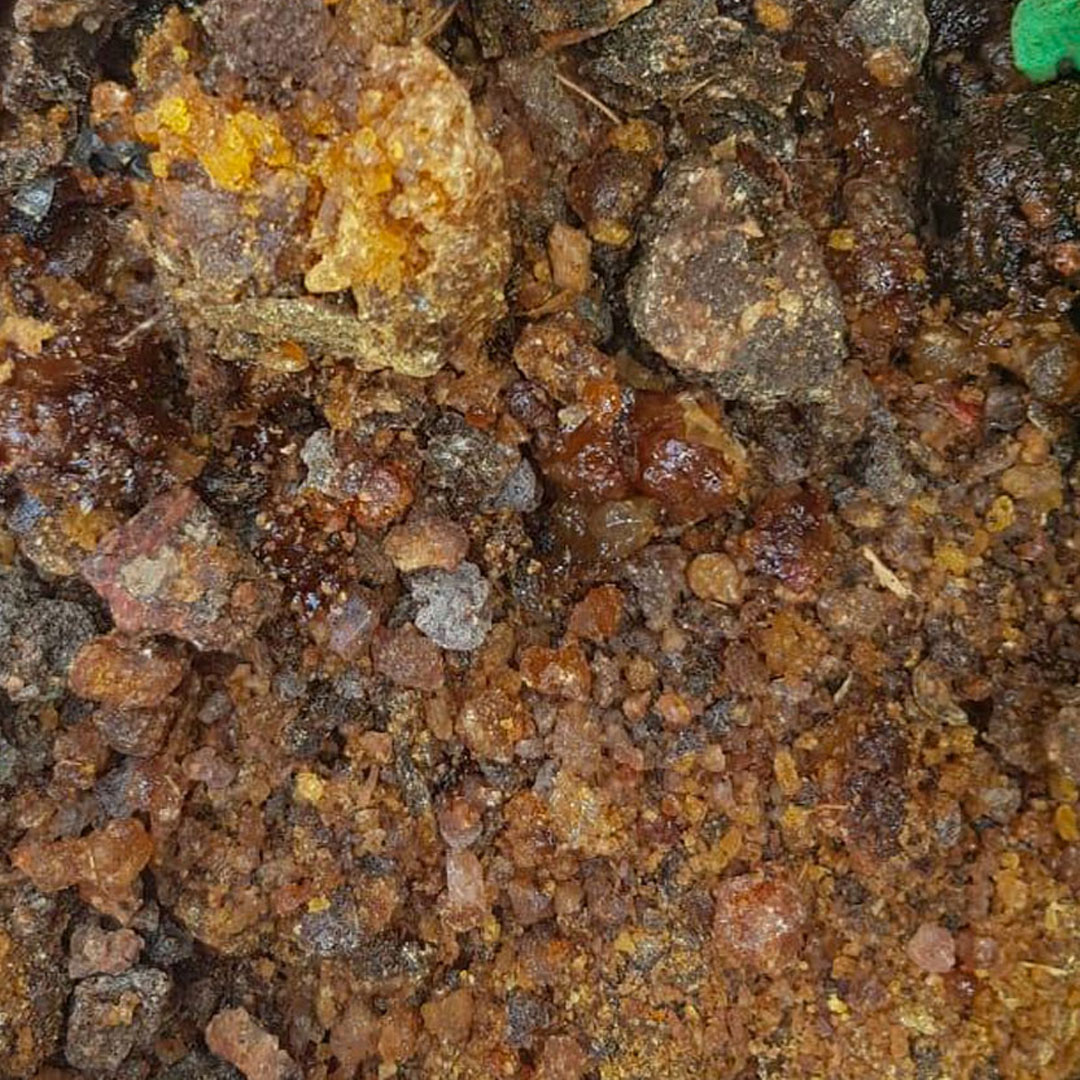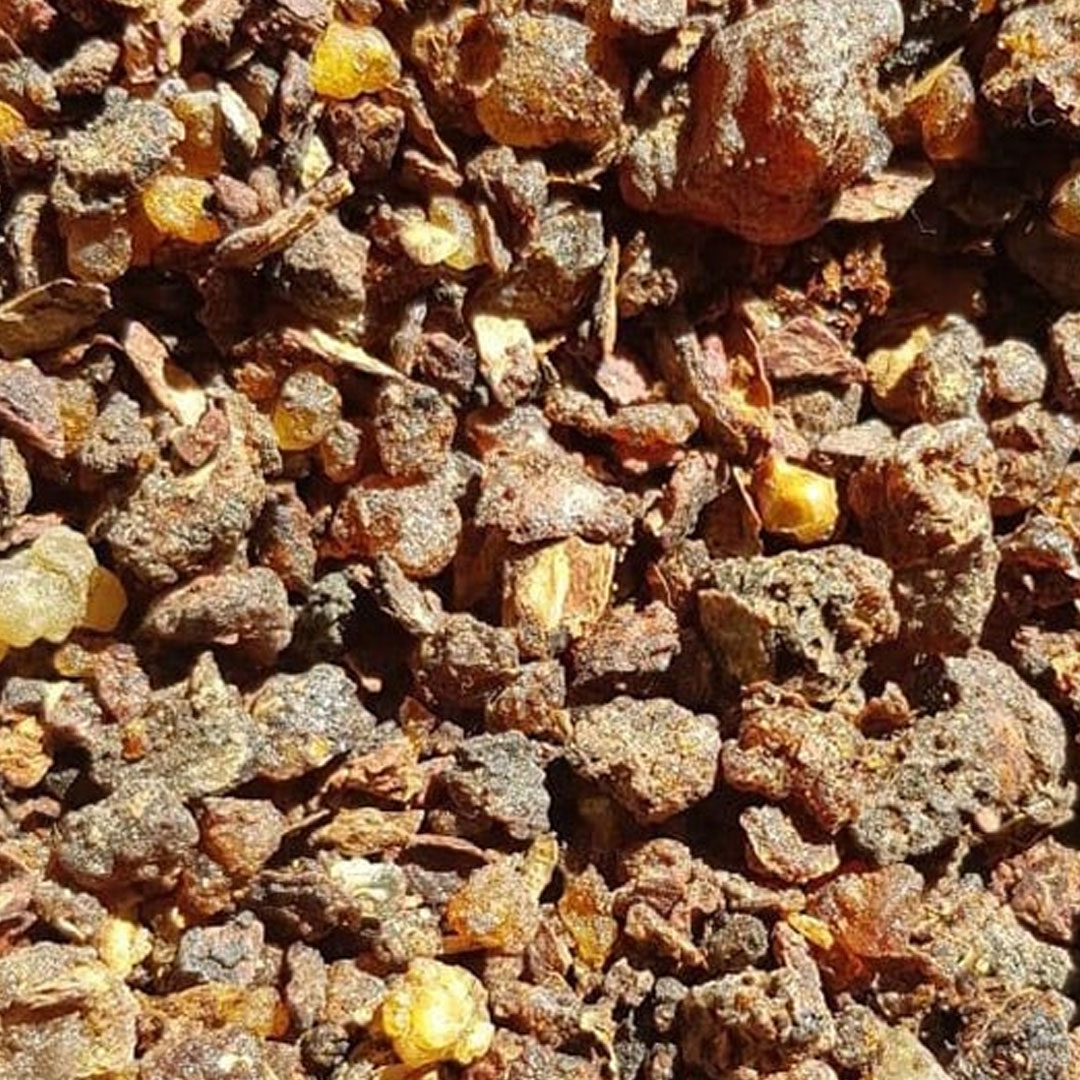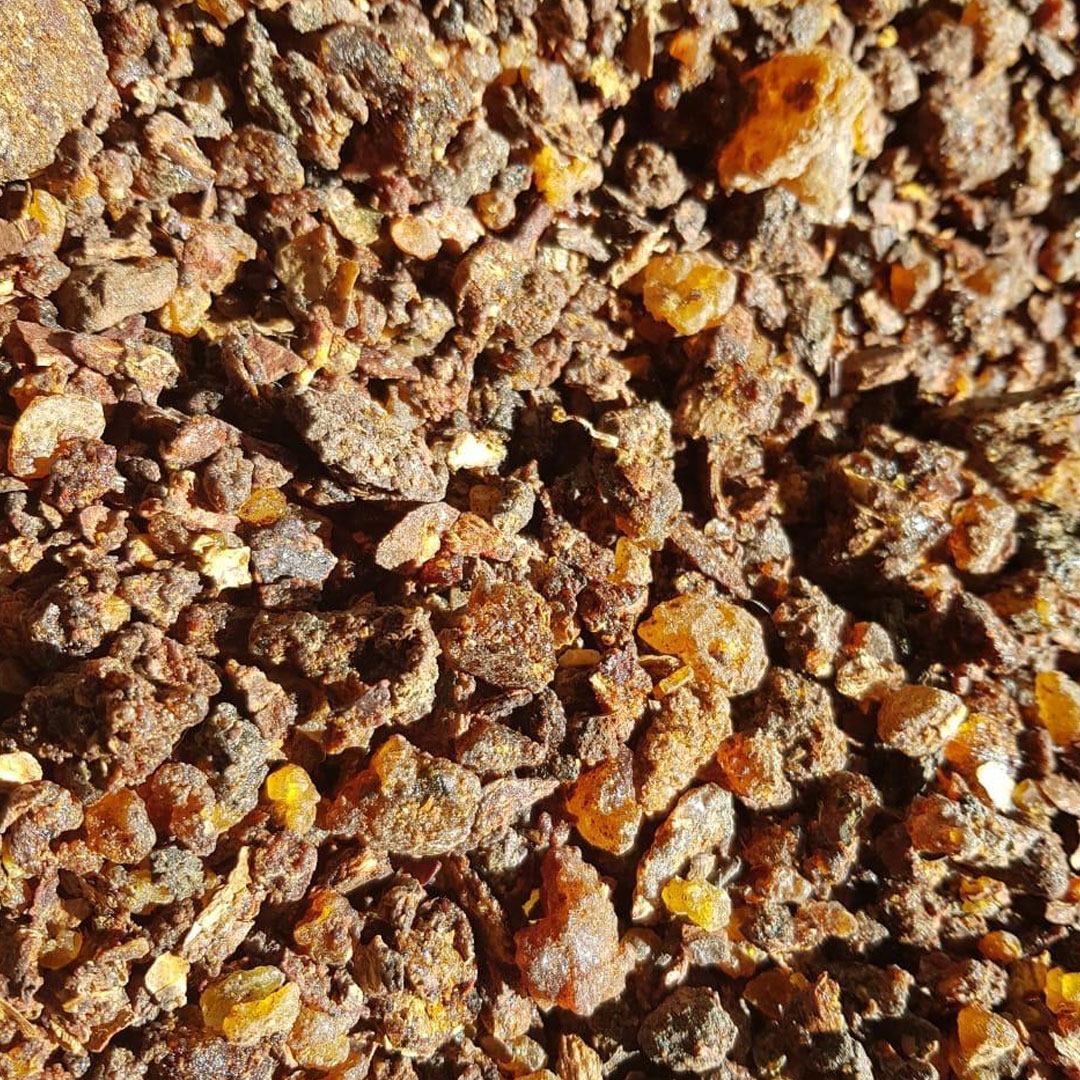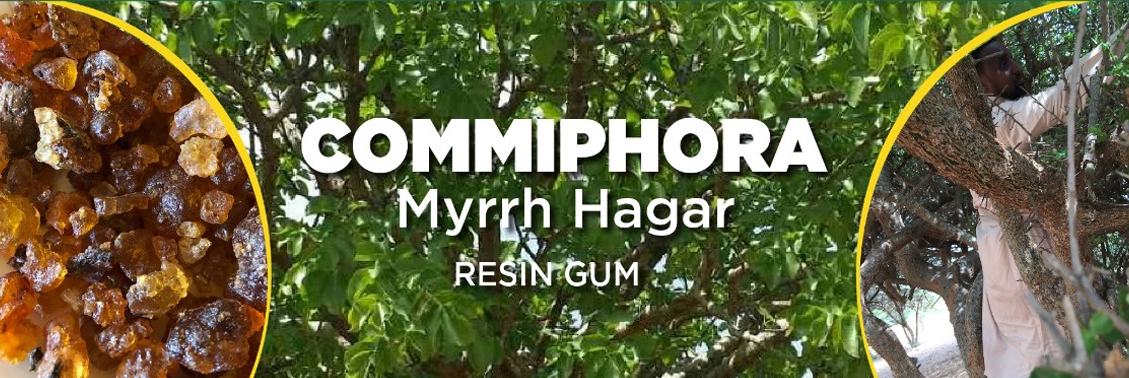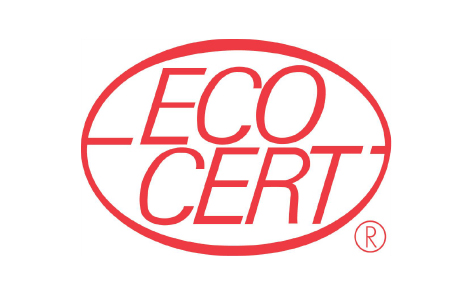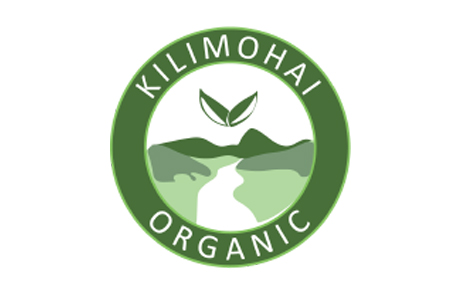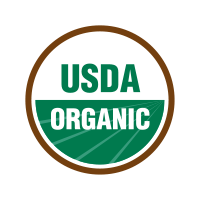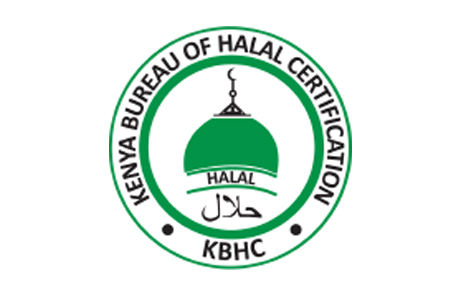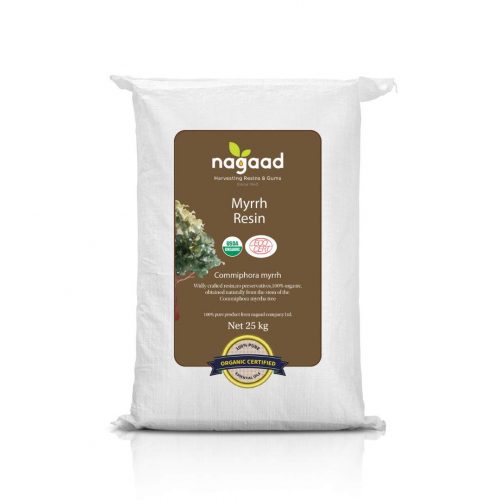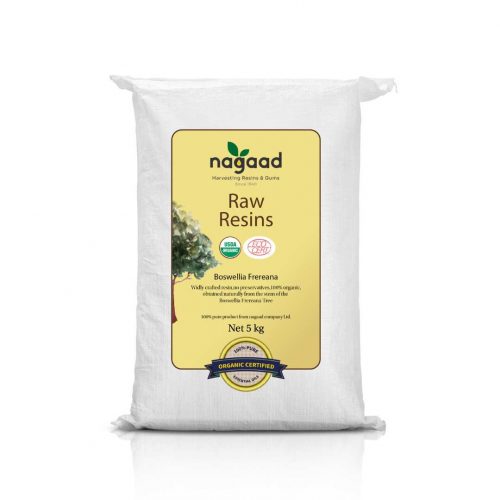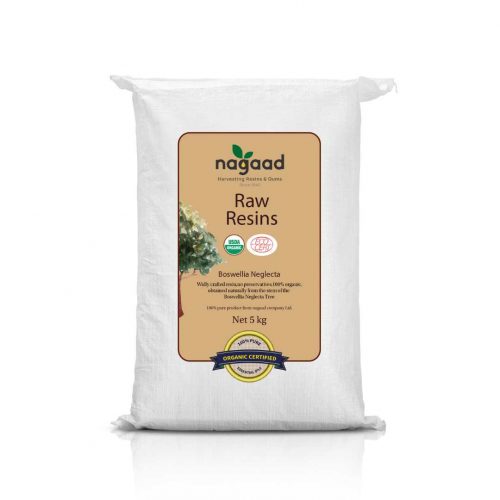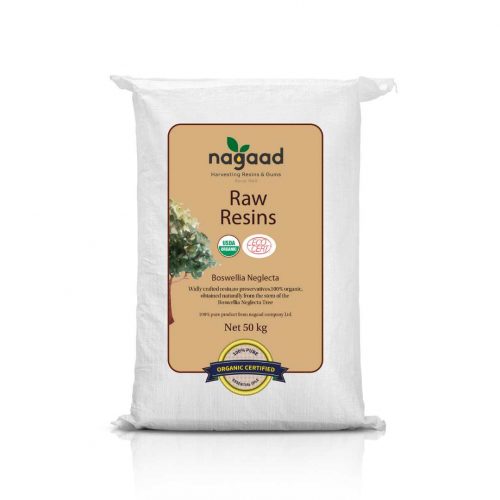The source of the Myrrh Hagar resin, or Sweet Myrrh, is the thorny shrub Commiphora holtziana. The tree oozes as a pale yellow-white viscous liquid from natural cracks in the bark or from fissures. The exudate hardens into a reddish-brown mass when air dried. The resin is 100% Wildly Organic and Wildly Harvested.
This product is Certified Organic by ECOCERT, the USDA National Organic Program (NOP), and the Organic Consumers Alliance of Kenya. This product is Halal Certified.





